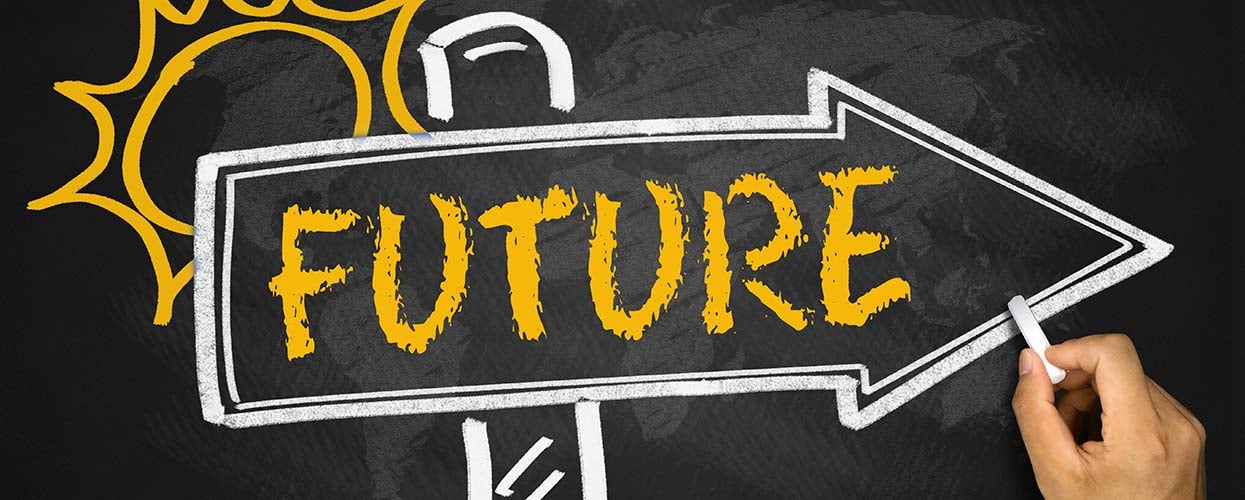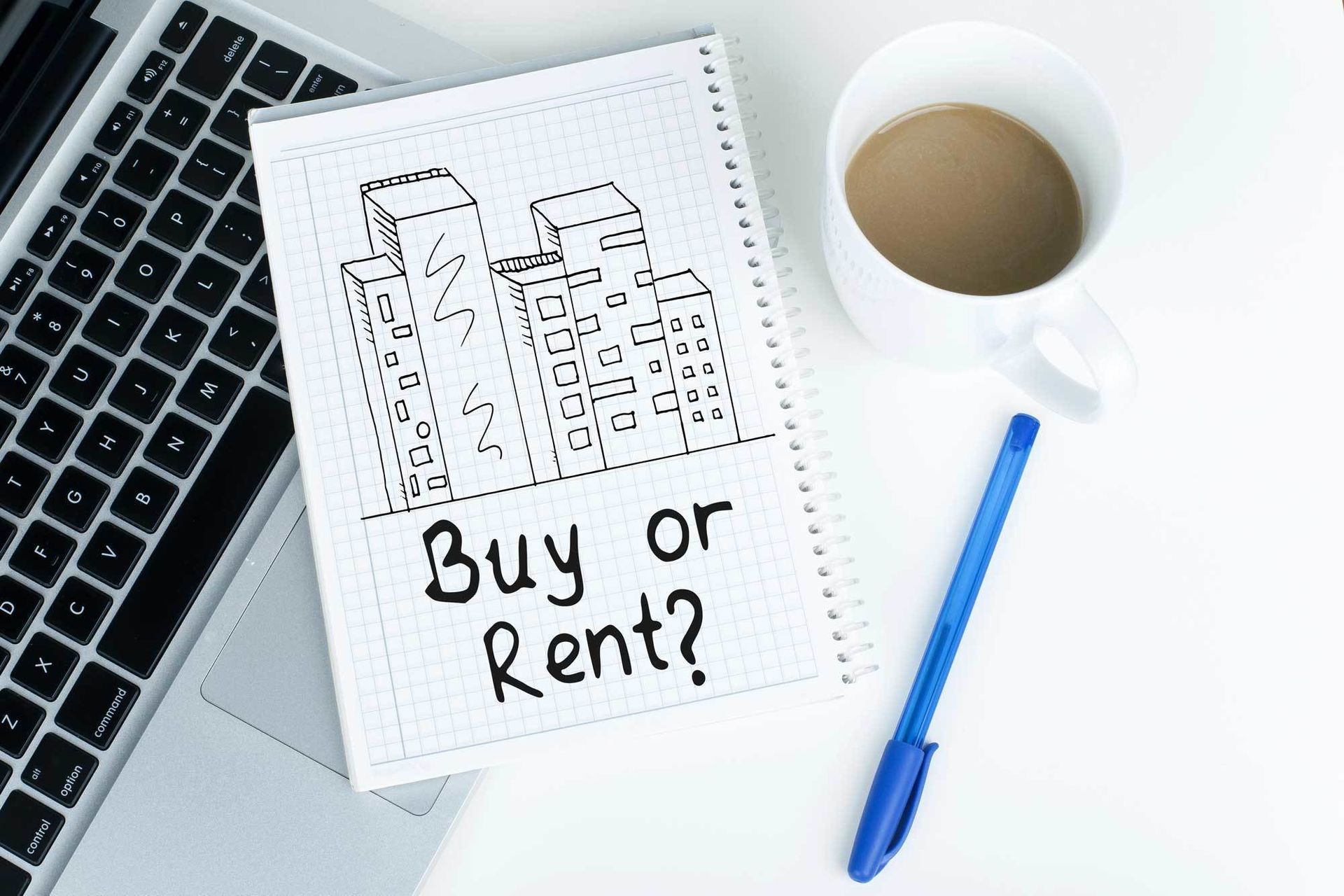Acquiring a home is undeniably one of the most substantial financial decisions in your life. Deciding whether it’s the right time to make that choice involves evaluating various factors, extending beyond your financial situation.
While your financial stability is pivotal, there are additional critical factors to ponder before committing to a home purchase. These include your age, the current dynamics of the real estate and mortgage markets, and your long-term vision for the future.
So, the question arises: Should you rent or buy a home? To make an informed decision, consider asking yourself the following questions.

What are your future plans?
In the short term, renting typically proves to be the more economical choice. Renting involves fewer upfront costs, usually limited to the first and last months’ rent, a monthly utility bill, and potentially moving expenses.
On the other hand, purchasing a home comes with a range of expenses. Beyond saving for the down payment, you’ll need to budget for additional costs such as land transfer taxes, legal fees, and potentially closing costs. Once you’ve moved in, your monthly expenses are likely to exceed what you’d pay if you were renting.
To make the right decision, it’s crucial to consider how long you plan to stay in your current location. If you intend to stay for the long term, buying a home may be the more prudent choice. However, if your stay is expected to be relatively short, renting may prove significantly more cost-effective.
There are situations where this may not hold true. For instance, if you’re purchasing in a major metropolitan area or its vicinity, there’s a chance that the real estate market could experience substantial appreciation in just a few years, potentially resulting in financial gains. However, market behavior is uncertain, so it’s advisable to choose the level of risk that aligns with your comfort and financial goals.

Your Life Plan Matters
Your age and life circumstances can indeed influence the decision between renting and purchasing a home. If you’re in your twenties, you may be more likely to relocate for relationships or career opportunities, making renting a more flexible choice.
On the other hand, if you’re in your thirties and have a stable relationship and an established career, purchasing a home may become a more attractive option.
It’s true that many people spend their twenties saving for homeownership, but the decision ultimately depends on your personal goals and circumstances. The sooner you have clarity on where you want to live and your long-term plans, the sooner you can make an informed decision about whether to buy a home.

How much does it really cost?
Homeownership comes with a range of fees, and as we’ve discussed some of them earlier, it’s essential to calculate these expenses for a clear comparison between buying and renting.
Purchasing a home entails various costs, including saving for a down payment, typically around 20% of the home’s purchase price. Additionally, there are multiple fees, property transfer fees, closing costs (if the home is new construction), and expenses related to moving, such as renting a moving truck.
You’ll also need to budget for furnishing your new home, potentially purchasing window treatments, and covering any necessary renovations or repairs.
Moreover, there are ongoing carrying costs associated with homeownership. While renting typically involves monthly rent payments and possibly utilities or tenant insurance, owning a home means you’ll be responsible for mortgage payments, property taxes, and, if applicable, condominium maintenance fees. Don’t forget other bills like utilities and insurance. It’s wise to set aside a portion of your monthly budget for future home repairs and maintenance, including items like roof or furnace replacements. Ask your Tax Accountant about the tax benefits of homeownership.
The financial considerations depend on the amount you’ve saved for a down payment and the rental costs in your city. To determine what makes the most sense for your situation, it’s crucial to perform your calculations. Consider both the short-term and long-term costs associated with buying versus renting to make an informed decision.

Are you in high interest debt?
If you currently have outstanding debts like car loans or high-interest credit card balances, it might be financially prudent to prioritize paying off those debts before saving for a home down payment.
Taking on a mortgage when you’re already burdened with substantial debt could potentially worsen your financial situation. Furthermore, having multiple existing loans can decrease your chances of securing a mortgage or obtaining one with a favorable interest rate.
To position yourself for a successful home purchase, it’s advisable to first address and manage your existing debts effectively. Once you’ve achieved a more stable financial footing, you can then proceed with confidence when considering a substantial mortgage loan for your new home.

Do you have the deposit saved?
Saving between 10% and 20% of the home’s purchase price is crucial to maintain lower monthly payments. A larger down payment can significantly reduce your ongoing carrying costs.
Additionally, having less than 20% saved might require you to purchase mortgage insurance, which can further increase your monthly payments.
To determine your readiness for homeownership, evaluate your current savings, estimate the time needed to accumulate a down payment, and consider beginning your home search once you have the necessary funds saved.
Alternatively, if you’re comfortable with the idea, you can explore the option of borrowing a percentage of the purchase price from your parents and establishing a repayment plan. This could help you enter the housing market sooner.
Ultimately, it’s essential to crunch the numbers and assess what approach aligns best with your financial situation and goals.

Is your job stable?
Consider your career stability when contemplating a home purchase. How long have you been in your current job, and do you envision a long-term commitment to your field? These are essential questions to ask.
If you’re content with your profession, have intentions to remain in your current city, and have confidence in the stability of your job, then purchasing a home is probably a favorable choice.
However, if your line of work involves contracts, seasonal employment, or you’ve recently started your job, and the possibility of relocation is on the table, it may be prudent to delay homeownership until your plans become more certain. Weigh your career prospects and personal circumstances carefully before making a decision.
Conclusion
While buying a home may appear to be the default choice for building equity and capitalizing on potential appreciation, it’s important to recognize that purchasing isn’t always the ideal option.
If you’re in the early stages of your career, dealing with other debts, lacking a substantial down payment, still establishing yourself in your profession, or contemplating a potential move, it may be wise to contemplate renting until you find yourself in a more stable and secure position for the future.
To make the most informed decision for your unique circumstances, take stock of your financial situation, career trajectory, and personal goals. If you’re unsure about the best path forward, consider seeking guidance from a financial advisor or real estate expert to ensure your future plans align with your housing choices.


